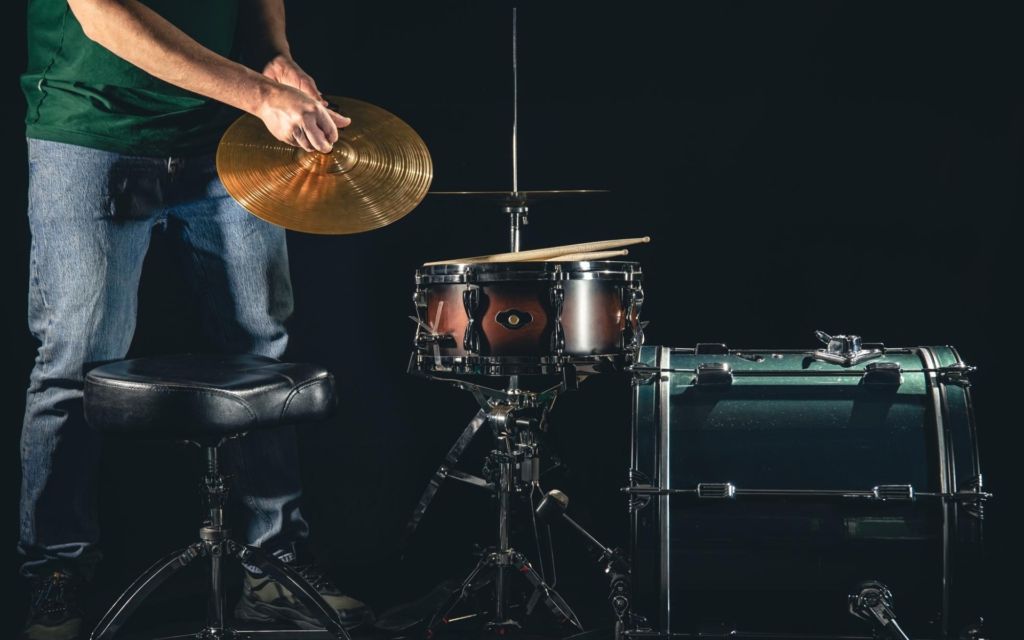On the day of your drum exam you will likely feel a range of emotions, most likely excitement and nervousness, which is absolutely normal!
The exam is a big occasion, and you will aim to perform as best as you can in front of the examiner. I have written this article to offer some important tips to help you to be best prepared in order to perform comfortably in the exam and without feeling too much pressure.
Contents
1. Bring Spare Drumsticks
Before my own drum exams in the past, I had a fear of either breaking a stick or dropping a stick halfway through a performance.
Fortunately, neither of these have ever happened, but to ease my nerves I would always bring a spare pair of sticks and keep them close by and within reach. Place a drumstick either on the floor by the stool or just to the right of your bass drum pedal.
You can also tape up your drum sticks with drum stick tape if you prefer, to offer enhanced grip.
2. Warm Up Beforehand
Take a practice pad to the exam center, and practice rudiments to a metronome whilst you are waiting to be called in.
Work your way through semiquavers of single stroke rolls, double stroke rolls, and paradiddles from 60bpm up to 120bpm. Not only will it loosen up your wrists and fingers, but it will also distract your mind from worrying and overthinking.
3. Make Yourself Comfortable
Spend a few minutes setting up the drum kit to your liking. This is really important. The drum kit in the exam room is unfamiliar and you will never have played on it before.
Make sure the stool is the right height and positioned so you can easily reach both pedals. Ensure that will be able to play all the toms and cymbals comfortably.
If anything does trouble you or you struggle to move something into position, politely ask the examiner if he can help you adjust it. Make sure your exam sheet music is also easy to see on the music stand and in the position you are used to.
4. Keep Calm And Carry On
If during the exam you do mess up a fill or skip a beat, don’t panic or get frustrated. Simply collect yourself, take a second to listen to the music, and pick up where you left off.
It is absolutely fine to make a mistake- nobody is perfect! The examiner will take into account your ability to recover from a slip-up that may be looked favorably upon.
5. Remember the Examiner Has Taken Exams Too
Contrary to what you may think, the examiner will want you to do well! He is an experienced drummer that will look at all your positives and hope to pass you based on your performance.
The examiner will also take into account nerves and he should try to make you feel relaxed as possible before you begin playing.
6. Rest and Relax Before the Exam Date
Make sure to take care of yourself physically and mentally leading up to the exam. There is no need to be stressed! So whilst you put in the practice, just be sure to et enough rest, eat well, and stay hydrated.
You can also practice relaxation techniques, such as deep breathing or visualization, to manage any exam-related stress or nerves.
Final Thoughts
I hope this guide has offered you some important advice to allow you to perform your exam as best as you can.
Remember, how well you play in your exam will reflect how well prepared you are. If you have prepared suitably with a teacher then you should have nothing to fear.
All anybody can ask from you is to try your very best! So go and have fun, enjoy yourself and express your musical voice!









